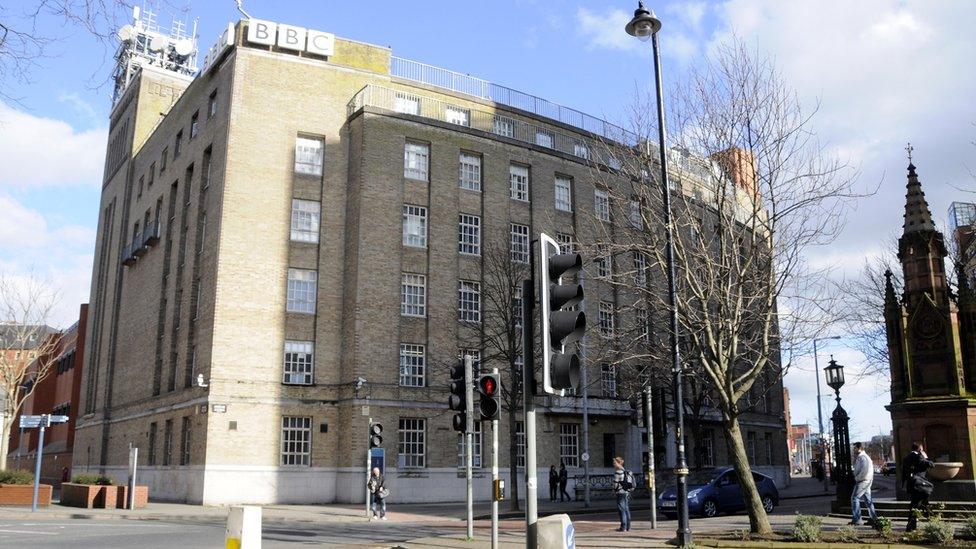BBC NI journalists to strike on election results day
- Published
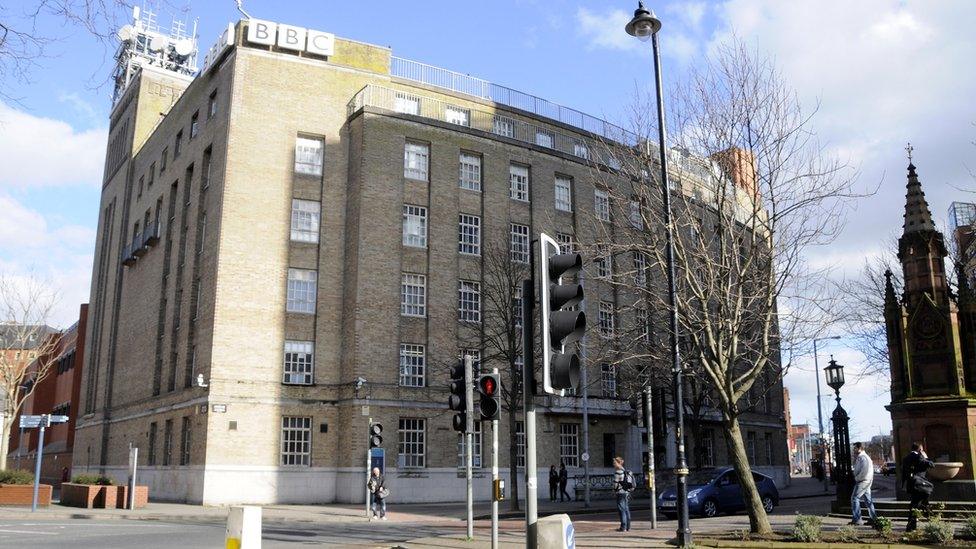
NUJ members at the BBC will strike for 24 hours during the council election period
Members of the National Union of Journalists (NUJ) working across BBC Northern Ireland are due to strike on Friday 19 May for 24 hours.
The strike is in opposition to proposed cuts to jobs and programmes in the BBC.
Members voted 83% in favour of strike action, according to the NUJ, on a 60% turnout via a postal ballot.
The BBC said: "We continue to engage constructively with staff and the trade unions in the interests of everyone involved and the audiences we serve."
In November 2022, BBC Northern Ireland (BBC NI) said they planned to close 36 posts in an attempt to make £2.3m of savings and invest in online services.
The strike action will commence at 00:15 (BST) on 19 May and end at 00:15 (BST) on 20 May.
This is likely to affect the Northern Ireland council election coverage as voting takes place on 18 May, with counting on 19 May.
In a statement, the NUJ said it believes "the BBC's restructuring plans will impact resources and their ability to deliver quality programmes across Northern Ireland".
The cuts have caused significant changes to BBC Radio Foyle, where a half-hour news programme entitled The North West Today has replaced the two-hour Breakfast show.
'Dispute is bigger than Foyle cuts'
BBC Director General Tim Davie gave evidence in January 2023 to the Public Accounts Committee at Westminster and said cuts to programming and jobs at BBC Radio Foyle are a "painful saving".
After Mr Davie's comments, politicians from the north west of Northern Ireland met BBC management in London to discuss cuts to BBC Radio Foyle.
Paul Siegert, NUJ national broadcasting organiser, told BBC Radio Ulster's Evening Extra programme that "the dispute is far bigger than what's happening in (Radio) Foyle - this is about cuts to local journalism across the whole of BBC NI".
"We would imagine it (the strike) will have a major effect on what listeners and viewers see and hear," he said.
"This is a key date when local journalism becomes apparent. We want to show what viewers and listeners will be missing."
Speaking about how the strike could be averted, he added: "We hope to sit down around the negotiating table with them (the BBC) next week, but they need to show that the cuts they are proposing will have the impact that we think they will have."
Why is the BBC making cuts?
In January 2022, the Culture Secretary Nadine Dorries confirmed the BBC licence fee would be frozen at £159 for two years.
That meant the BBC had to find a way to save money as the licence fee would not go up with inflation.
As a whole, the BBC announced proposals to make £500m in annual savings and to become a "digital-led" organisation in May 2022.
That included plans to employ up to 1,000 fewer people in the publicly funded part of the BBC over the next few years.
CBBC and BBC Four will stop airing as traditional broadcast channels and move to iPlayer, while a single news channel is replacing UK and world channels.
According to the BBC's most recent annual report for 2021/22 the number of adults who watch BBC TV each week has fallen, whereas use of digital services like the iPlayer, BBC online and BBC Sounds has risen.
BBC Northern Ireland spends about £55m a year on local programmes and services across TV, radio and online.
Related topics
- Published21 April 2023
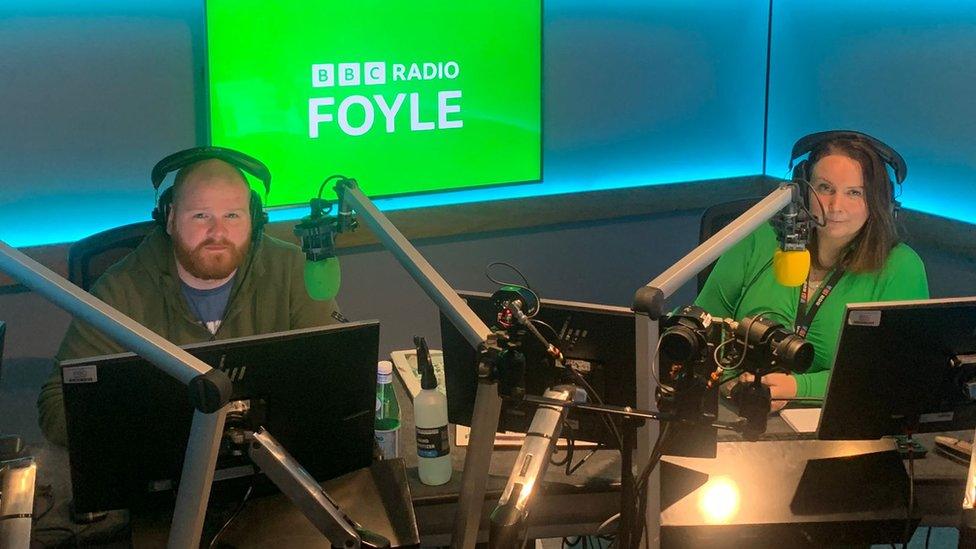
- Published5 January 2023
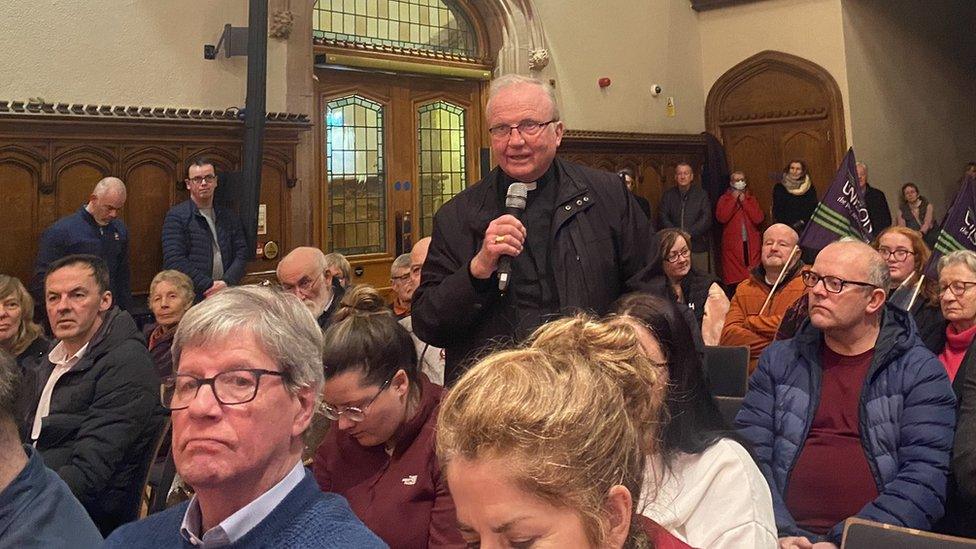
- Published12 January 2023
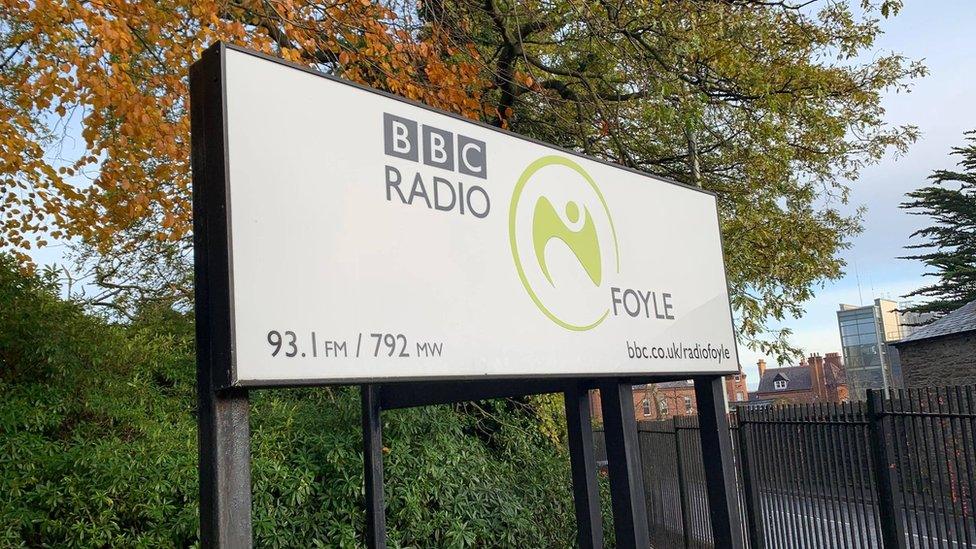
- Published29 November 2022
